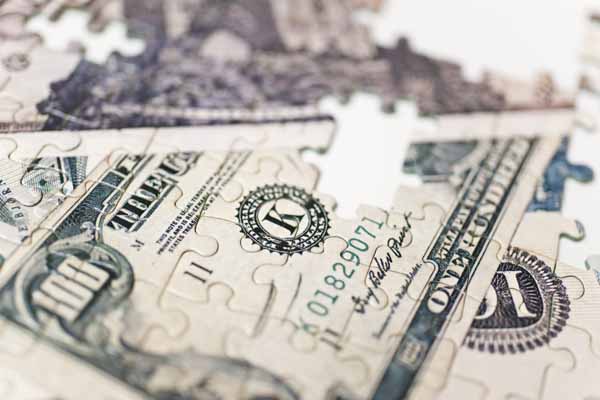The Boston North Shore economy grew only slightly less than expected during the first quarter of 2016. This was due, in part, to a surge in home-building and a slow but steady increase in inventory investment by businesses. The U.S. Commerce Department had projected the gross domestic product (GDP) to grow at a rate of .9%. In actuality, the GDP grew slightly less than that, at .8%.
Boston North Shore Economy: What to Expect

The rise in GDP of .8% was higher than the .5% pace reported last month, the Commerce Department reported. It was at the weakest level since the first quarter of last year. The upward revision to the GDP growth estimates the result of improved trading than was previously anticipated. In addition, government reports included a slight rebound in post-tax corporate profits. Profits increased at a rate of .6% in the first quarter after suffering an 8.4% decline during the fourth quarter of 2015.
Looking at the income side of the equation, the U.S. economy grew at a 2.2% pace following an increase of 1.9% during the fourth quarter of 2015.
The Boston North Shore economy – as is the case throughout the U.S. – has been damaged by a relatively strong dollar and stagnant-to-sluggish demand in global markets. That slowed demand has resulted in eroding growth in exports. The economy has also been hurt by lower oil prices, undercutting profits for major oil companies and causing them to curtail or suspend equipment spending.
Economists argue the government’s model to selectively dissect seasonal patterns from reporting data isn’t working. Government agencies including the Commerce Department spent considerable time in the past year trying to address the reporting problems.
First-quarter GDP data has suffered due to the residual seasonality inherent in the reports, with growth underperforming in five of the last six years. There are some signs that the economy gained traction in the second quarter in retail sales, industrial production, the export of goods, housing starts, and home sales increases in April.
While the Atlanta Federal Reserve is currently forecasting a second-quarter increase in the GDP of 2.9%, the continuing higher than expected inventory levels presents a risk to their estimate. In a recent poll of U.S. economists by Reuters, most had anticipated the first-quarter growth in GDP would be revised upward to .9%. The U.S. economy grew at a 1.4% rate during the fourth quarter of 2015.
Spending on residential construction in the Boston North Shore economy increased 17.1% in the first quarter – representing the fastest growth rate in just over three years. The increase was previously reported to be 14.8%. Nationwide, businesses amassed over $69 billion worth of inventory, up from the $60.9 billion estimated a month ago. Inventory was reduced slightly by .2% from the first-quarter GDP growth projections of .33%.
Consumer spending levels, which account for over 66% of the activity in the U.S. economy, were not revised. Spending increased at a rate of nearly 2%, slightly lower than the fourth quarter’s 2.4% pace.
U. S. households were apparently more frugal in the first quarter. There was a noticeable cutback on the purchase of long-lasting manufactured goods like automobiles and home appliances. Disposable household income after taxes and inflation was revised upward to reflect a 4% growth rate during the first quarter compared to the previously reported 2.9%.
Savings in accounts were revised upward to nearly $783 billion from $712 billion. While exports were initially anticipated to be weak, first quarter results showed improvement, resulting in a smaller trade deficit.
Economists expect cheap gas and lower airfares will result in a spike in summer travel and an overall slight increase in the U.S. economy.
While building permits issued remain relatively high, the actual number of home starts concern some analysts insight of what has already been termed a “low inventory home market.”
Furthermore, many U.S. economists are concerned that the Federal Reserve, in an effort to cling to the misguided belief that full employment causes inflation, will raise interest rates at their next meeting. Defining “full employment” as a maximum unemployment rate of 5-6%, the Fed is exhibiting signs leading to “stagflation” – the condition that largely plagued the U.S. economy during much of the 1970s and early 1980s. Stagflation was defined as rising inflation doubled with a high unemployment rate and low-to-negative economic growth.
Economists fear the Fed doesn’t fully understand that full employment and stable prices can co-exist. They argue that having more workers producing goods and services will never, on its own, contribute dramatically to an economy of soaring prices. The recent pace of hiring was the lowest since the fourth quarter of 2015. In addition, job creation has churned to a sluggish average of 200,000 net new jobs created for the past three months. Most concerning is the fact that this slowdown comes on the heels of a five-year high of 282,000 jobs per month during the fourth quarter of 2015.
It remains to be seen what the Federal Reserve will or won’t do and how their decision will affect the Boston North Shore economy. In the meantime, there are bright spots that can hopefully be expanded. As is usually the case, an election year may have anticipated changes and consequences.
Read more articles pertaining to the Boston North Shore economy in the section of articles on the Boston North Shore Economy just below Boston North Shore Real Estate Categories in the column to your right. And remember, we also post tips daily on Facebook and Twitter. Check us out there, too.
